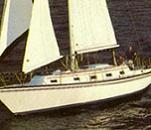In looking for info on batteries, I have seen a few things that may or may not be an issue. Your mileage may vary.
1 - the use of solid-core wire. In the early 1980s, the use of solid core wires was basically "outlawed" in the construction of boats. Solid-core wire when subjected to continued flexing, would crack, and short. Several fires resulted. Everything uses stranded wire today.
When I buy wire from my favorite wholesale, I have to watch because they always try to sell me automotive-grade, not marine-grade. (Marine grade wire is smaller individual strands and tinned over 100% of the run) This seem to imply that for automotive and RV applications people should be using stranded wire, but I have seen many photos of solid-core wire in AC electrical systems.
Now my 1979 sailboat was built with solid core wire, and had no problems, until my insurance company refused to cover it until it was rewired.
2 - Wire Nuts. The don't work with anything but solid-core, so see item 1. Crimp connectors are easy and secure, and if you have any question about exposure to the elements it is easy to cover them with heat-shrink tubing.
3 - Batteries in parallel. There is a lot written on this, but batteries in parallel are fairly common in the marine industry. I have six 6-volt batteries in my boats house bank, and separate starting battery. Everything - except air conditioning - on my boat is 12 volt DC, including the refrigeration. The last set lasted 6 years, and I admit they were neglected. (I installed a battery watering system when the new 6 were installed last year.) Everything is fused, and I have cut-off switches so I can isolate bad pairs. (660 amp hours of power lets me run refrigeration and autopilot... it isn't too much.) Is it the perfect set up? No, but I don't have to fiddle with it constantly and the electronics manage it pretty well.
Wire Nuts, Parallel Batteries and other thoughts
62 posts
• Page 1 of 5 • 1, 2, 3, 4, 5
Wire Nuts, Parallel Batteries and other thoughts
"Houses are but badly built boats so firmly aground that you cannot think of moving them.... The desire to build a house is the tired wish of a man content thenceforward with a single anchorage. The desire to build a boat is the desire of youth, unwilling yet to accept the idea of a final anchorage." - Arthur Ransome: Racundra's First Cruise, 1923
-

ZendoDeb - Teardrop Builder
- Posts: 42
- Joined: Thu Nov 06, 2008 3:12 pm
- Location: Greater Tampa Bay
Re: Wire Nuts, Parallel Batteries and other thoughts
ZendoDeb wrote:In looking for info on batteries, I have seen a few things that may or may not be an issue. Your mileage may vary.
1 - the use of solid-core wire. In the early 1980s, the use of solid core wires was basically "outlawed" in the construction of boats. Solid-core wire when subjected to continued flexing, would crack, and short. Several fires resulted. Everything uses stranded wire today.
My how times have changed. I used romex for the 120vac and automotive for the 12v.
When I buy wire from my favorite wholesale, I have to watch because they always try to sell me automotive-grade, not marine-grade. (Marine grade wire is smaller individual strands and tinned over 100% of the run) This seem to imply that for automotive and RV applications people should be using stranded wire, but I have seen many photos of solid-core wire in AC electrical systems.
Now my 1979 sailboat was built with solid core wire, and had no problems, until my insurance company refused to cover it until it was rewired.
2 - Wire Nuts. The don't work with anything but solid-core, so see item 1. Crimp connectors are easy and secure, and if you have any question about exposure to the elements it is easy to cover them with heat-shrink tubing.
Solder anything you want to stay and cover in a wire nut or some of the new connectors. Shopping spree will give all sorts of ideas.
3 - Batteries in parallel. There is a lot written on this, but batteries in parallel are fairly common in the marine industry. I have six 6-volt batteries in my boats house bank, and separate starting battery. Everything - except air conditioning - on my boat is 12 volt DC, including the refrigeration. The last set lasted 6 years, and I admit they were neglected. (I installed a battery watering system when the new 6 were installed last year.) Everything is fused, and I have cut-off switches so I can isolate bad pairs. (660 amp hours of power lets me run refrigeration and autopilot... it isn't too much.) Is it the perfect set up? No, but I don't have to fiddle with it constantly and the electronics manage it pretty well.
Can't wait to see the pictures

 You are right 6 batteries will be very heavy. A small TD will need very little power unless you are refrigerating and heating. Have fun
You are right 6 batteries will be very heavy. A small TD will need very little power unless you are refrigerating and heating. Have fun“Forgiveness means giving up all hope for a better past.â€
-

Miriam C. - our Aunti M
- Posts: 19675
- Images: 148
- Joined: Wed Feb 15, 2006 3:14 pm
- Location: Southwest MO












